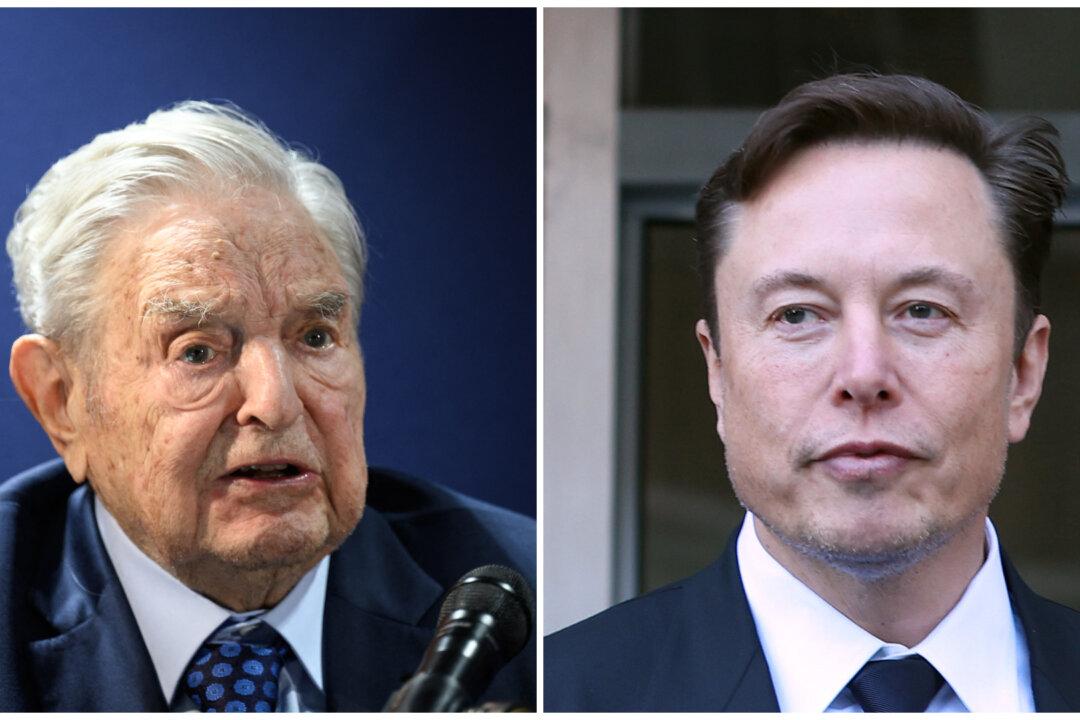Elon Musk said that X, the platform formerly known as Twitter, would sue organizations funded by financier George Soros that allegedly pushed for a crackdown on free speech.
Mr. Musk, who bought Twitter last year in a pledge to make the platform a bastion of free speech, said in a post on X on Aug. 23 that he agrees with the view expressed by investigative journalist Michael Shellenberger that George Soros-funded NGOs have been falsely claiming that “hate incidents” are on the rise in order to push restrictions of free expression.





